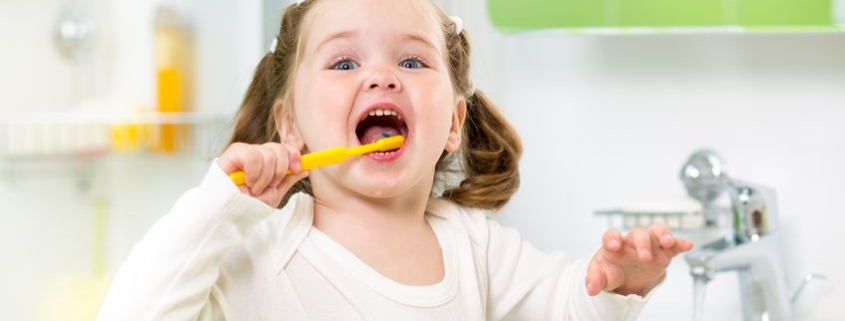The ‘Tooth’ About Dental Care!
By Dr. Lou Sarrosa, NOAH Dental Director
The American Academy of Pediatric Dentistry (AAPD) recommends that parents clean a baby’s mouth even prior to the eruption of teeth. This can be done with a soft cloth after feedings. When the first tooth/teeth erupt(s), the tooth/teeth should be brushed with an appropriate brush size for small children with a smear (size of a grain of rice) of fluoridated toothpaste (that is marked with the seal of approval by the American Dental Association) up until the age of 3 years. For children 3 to 6 years of age, a pea-sized amount of fluoridated toothpaste may be used. Proper supervision is always recommended so the child does not swallow any toothpaste.
Toddlers should be encouraged to brush their own teeth with parental supervision as soon as he/she can hold a toothbrush. Usually by the age of 7 or 8 years old and when the child can tie his/her own shoelaces, the child may be allowed to brush unsupervised. Until then, a parent should supervise the toddler/child and make sure that all surfaces of all teeth are being brushed properly. Teeth should be brushed twice daily, preferably after breakfast and before bed.
The AAPD recommends that every child should visit their dentist by his/her first birthday. This visit can establish a dental home for the child and give parents the education needed to help their child maintain good oral health.
Your child’s dentist will recommend regular checkups for your child at least every 6 months.
“I like Dr. Sarrosa because she is nice and funny. Coming to the dentist is easy and I am never scared!”
-Gio Morales
A cavity is a hole in the tooth created by the demineralization of the tooth structure by acids produced by bacteria present in the mouth and by sugars present in food and drinks.
Sealants are a plastic material painted onto deep pits or grooves of teeth to protect them from cavity-causing acids produced by bacteria and sugar.
You should replace your toothbrush every 3 months or earlier if the bristles become frayed.
As soon as a child’s teeth come into close contact with each other, flossing is recommended at least once a day, especially before bed.
Fluoride can help prevent tooth decay. Your child’s dentist may recommend fluoride treatment such as a varnish (a sticky paste) or a gel or foam, depending on your child’s risk for cavities.
Kids have 20 pearly white teeth in their first set. When those baby teeth fall out and the full set of permanent teeth grow in (around 12 or 13), there are 28 teeth! If wisdom teeth (extra set of molars) grow in, you can have up to 32 teeth.
We are accepting new patients so call today at 480-882-4545 or request an appointment here. #pediatricdental #oralhealth #teeth





